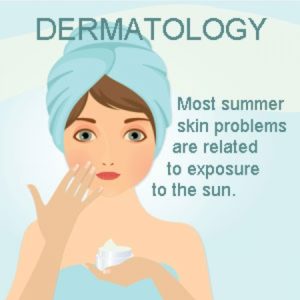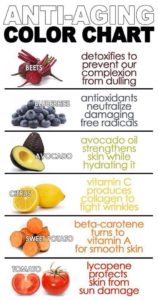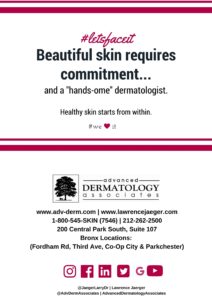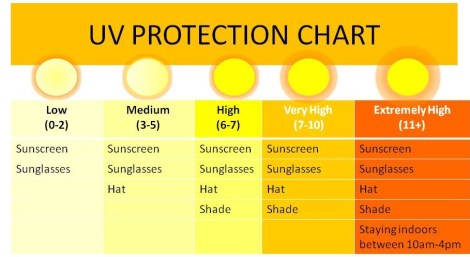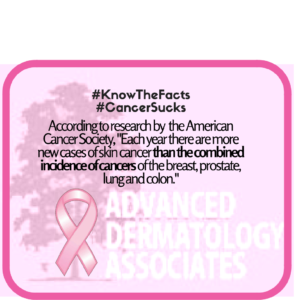
(Advanced Dermatology Associates & Dr. Larry Jaeger)
How do you know the information and advice you get about your skin is true? Skin care product brands spend millions marketing their products. Your friends probably have as much medical knowledge as WebMD.
With so much misinformation out there, we’re Debunking 6 Biggest Myths About Your Skin Care.
Tanning is harmless: Exposure to ultraviolet light, UVA or UVB, accounts for 90% of the symptoms of premature skin aging. Both UVA and UVB radiation can cause skin damage including wrinkles, lowered immunity against infection, aging skin disorders, and cancer.
Acne is caused by what you eat: Acne is caused by overproduction of sebum (oil) and obstruction of the pores. The amount of sebum produced by the skin is regulated by hormones only, not food. This includes chocolate, greasy food, soda, and fast foods. These foods do not have any effect on the hormones that regulate sebum production.
Topical antioxidants reverse wrinkles: Free radicals play an important role in creating wrinkles. Therefore, it makes sense that antioxidants will make skin more youthful. Unfortunately, there are no good scientific studies that show what type of topical antioxidant is effective. This research is being conducted now, but it is still too early. Right now the only topical product that has been proven to improve wrinkles is Retin-A.
“All-natural” skin care products are best: What exactly does “all-natural” mean? Unfortunately, this term can mean just about anything, and cosmetics companies use it any way they want. All cosmetics and skin care products have synthetic ingredients in them. Because a skin care product is made from a plant does not mean that it is better for the skin than a product created in a lab.
Expensive skin care products are better than inexpensive ones: The cost of a skin care product or cosmetic is absolutely NOT an indicator of effectiveness. The consumer industry would like people to believe that more expensive product have some special ingredient in it that makes it more effective. However, there are many products in every category that are effective and don’t come with a high price tag. “Retinol is one of them—so much science has been done on the value of it. Vitamin C and Vitamin A, have all been proven by science to work.
Men don’t have as many skin problems as women: Untrue, men wrinkle as much as women and they get skin conditions such as acne, seborrhea, atopic dermatitis, and psoriasis just like women. Men also have additional concerns surrounding facial hair. It can be argued that men don’t use sunscreen and protect their skin properly.


